Sydney man saves lolly shop by going viral which brings in $1m in a year
An Aussie lolly shop boss never could have imagined that a single click of a button would save his business and propel him into millionaire status.
Companies
Don't miss out on the headlines from Companies. Followed categories will be added to My News.
A quaint little lolly shop in the heart of Sydney has turned the tables on Covid-19 thanks to an idea sparked by the hundreds of gawkers it used to attract every day.
Before the Covid-19 pandemic, Sticky, a small artisanal confectionery shop in The Rocks, would have dozens of faces pressed against its windows at any one time, as passers-by watched employees make hard-boiled lollies from scratch.
However, when the Covid-19 pandemic hit in March last year revenue dropped to “literally zero” and “it was like something out of 28 Days Later”, according to Sticky’s owner David King.
“We thought maybe we could leverage something of our theatrical process in a livestreaming (video),” Mr King told news.com.au.
“People have stood and watched us for an hour and maybe we can do that in an online setting.”
Little did he know that this seemingly small decision would save his business and propel him into millionaire status.
After going viral on social media including on US rapper Snoop Dogg’s account, Sticky was not only brought back from the brink of disaster – it is now making more than ever with a revenue of “well into seven figures” for the 2020-2021 financial year.
RELATED: Aussie uni students make huge change to crypto
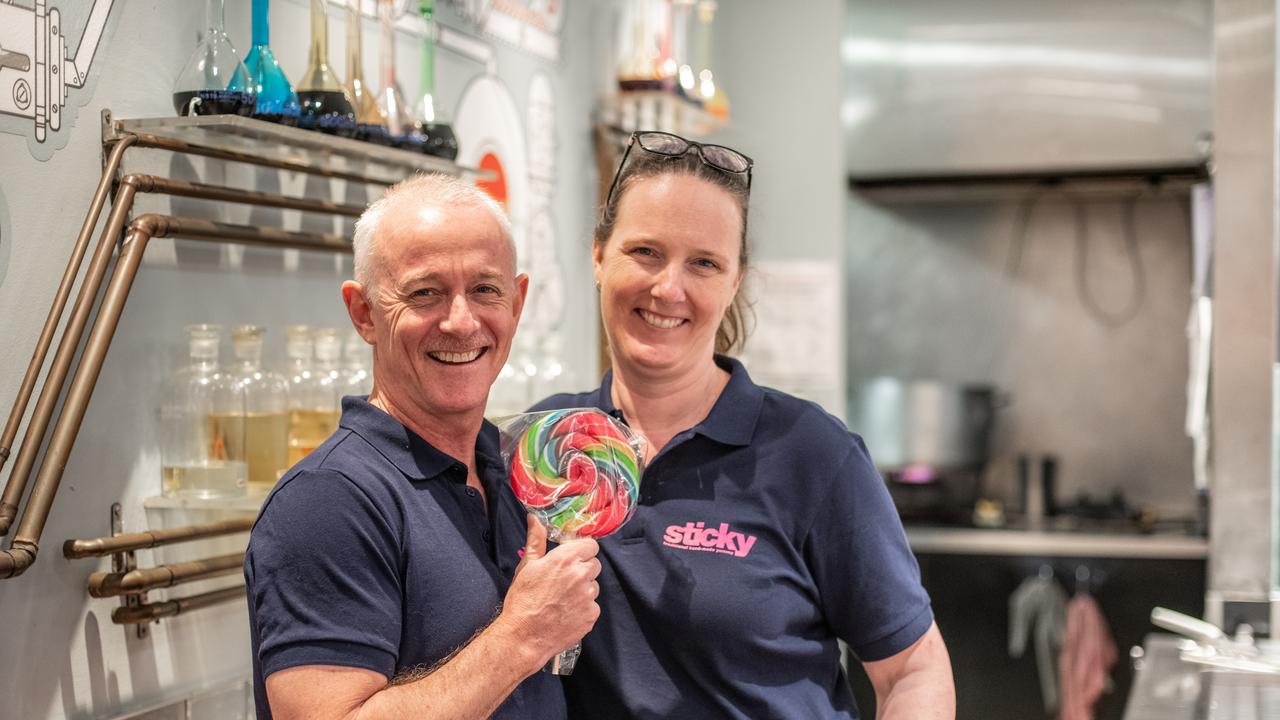
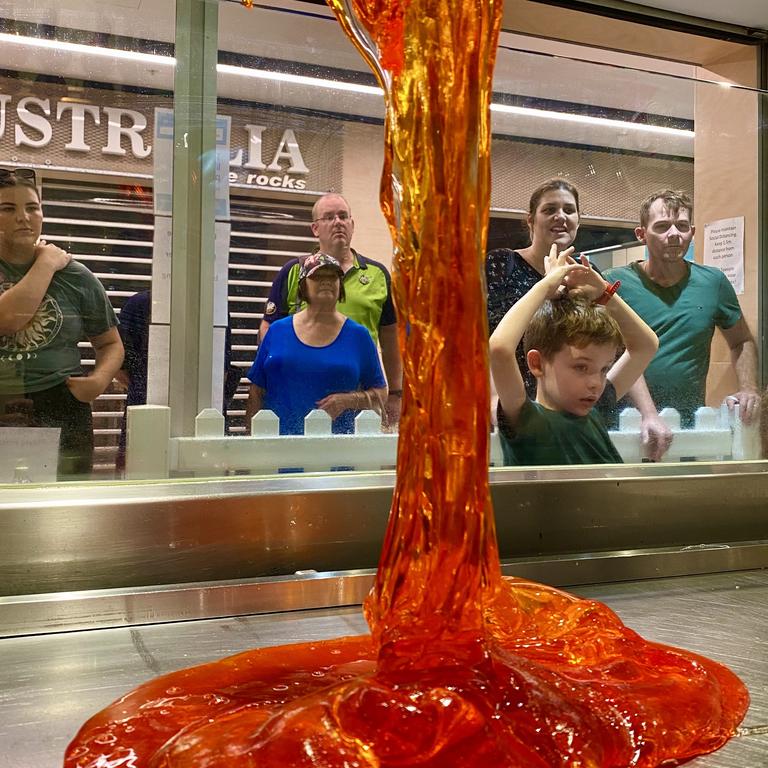
RELATED: Melbourne mates make $7m in six months
Mr King, 50, and his wife Rachel, 47, opened Sticky in 2001, after quitting their jobs in corporate law and big pharma respectively.
Between 2001-2020, they had a very minimal online presence, with it only accounting for 10 orders a week.
However, their business was completely gutted by the international border ban and subsequent nationwide lockdown that hit Australia in March last year.
“We operate in three markets: retail, events, and corporate. With all three of those markets being a tourist district disappeared, everyone cancelled,” Mr King recalled.
“For seven or eight days, we were standing there in an empty shopping centre.
“We were standing staff down, we were about to pull the doors down.”
Mr King’s long-time bookkeeper and friend helped them hang on by lending them some money. Then JobKeeper was rolled out.
RELATED: ‘Distressing’ side to Sydney lockdown
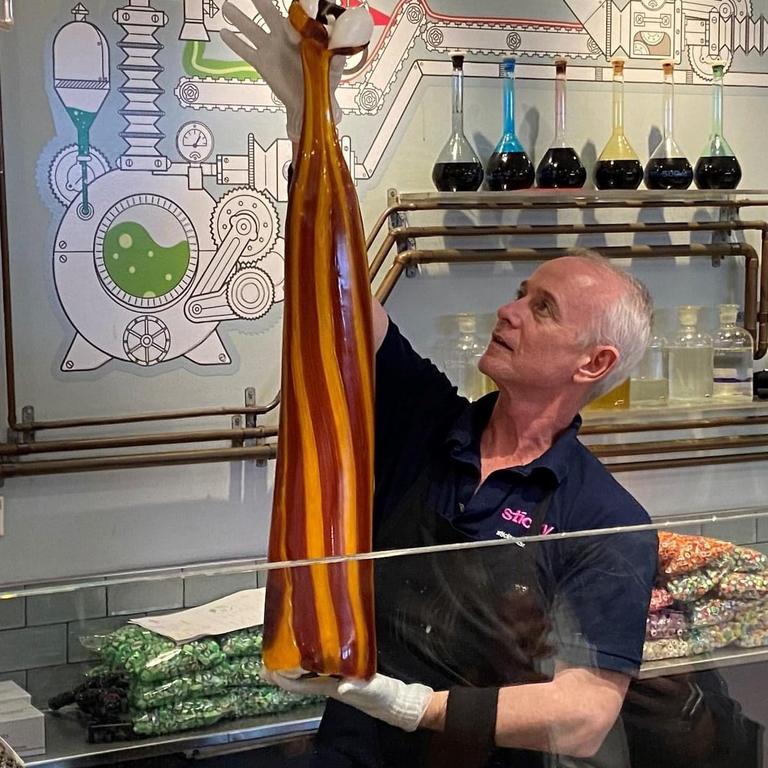
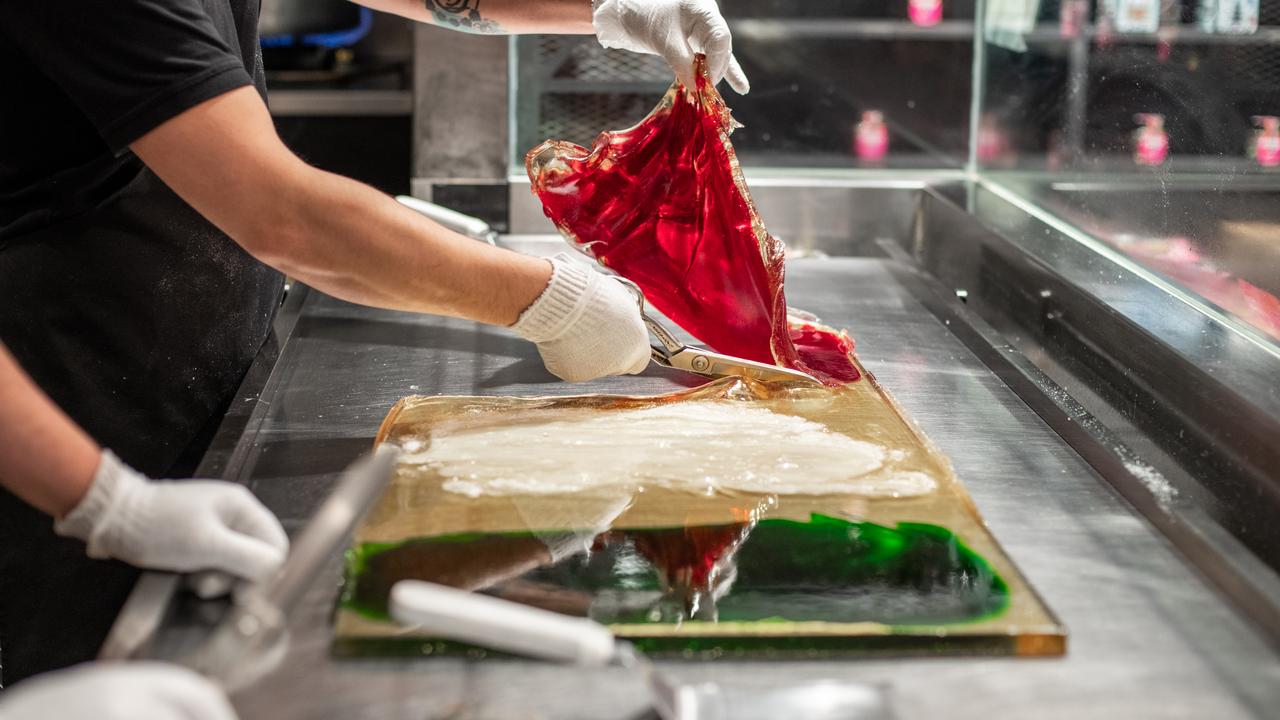
Sticky invested in a few cameras and “put effort” into costumes to look presentable, then started filming.
For their first ever Facebook livestream, they had 60 people watching. That became 100, then 200 live viewers.
Mr King spent $25 boosting a live event on Facebook – which to this day is the only money he’s forked out to promote his social media channels.
“Then it blew up a bit, the algorithm it blew up,” Mr King said.
“About two months in, we had up to 20,000 tuning in (to live streams).”
For context, that’s more than most Covid-19 press conferences streamed live on Facebook.
“They (our videos) would go on to get hundreds of thousands of views,” he continued.
“Some have had 70 million views.”
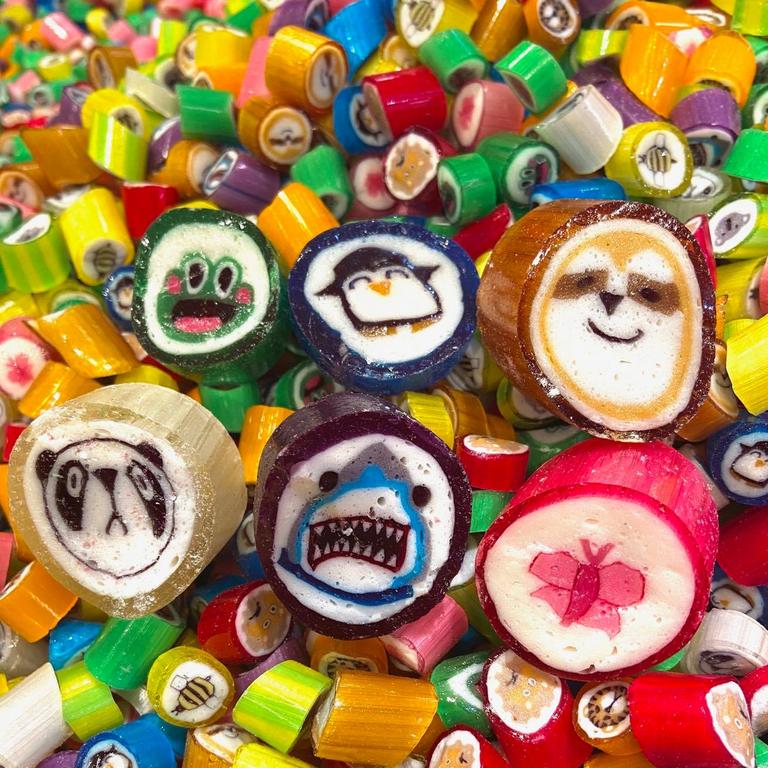
But Mr King’s brush with online fame didn’t end there.
His 17-year-old daughter Annabelle – who was in the middle of her final year HSC exam – was determined to make a TikTok account for her family business.
“She had a friend who had a thousand followers and, she thought she could get that,” Mr King said. “That (1000 followers) happened in the first day.”
A friend of US rapper Snoop Dogg spotted Sticky’s TikTok account and dueted one of their videos – the equivalent of sharing it.
Snoop Dogg himself later shared it on Instagram.
“Our followers went up by 1.5 million in a weekend,” Mr King said.
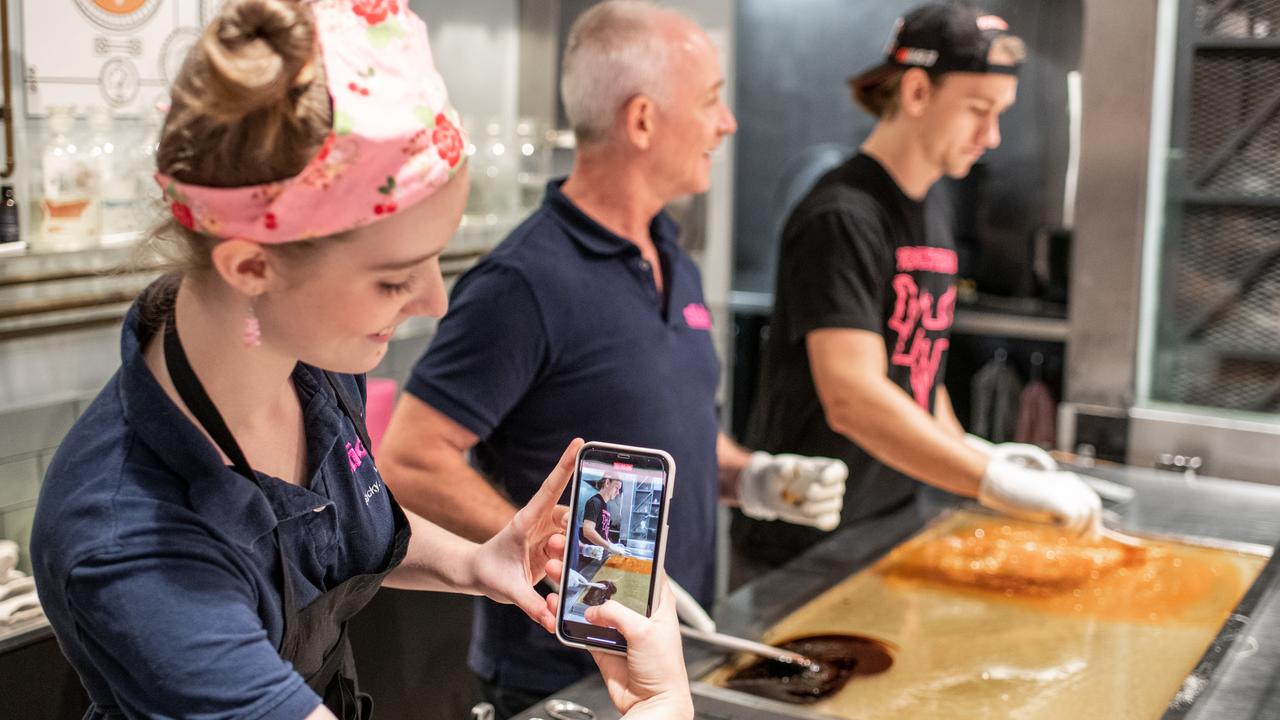
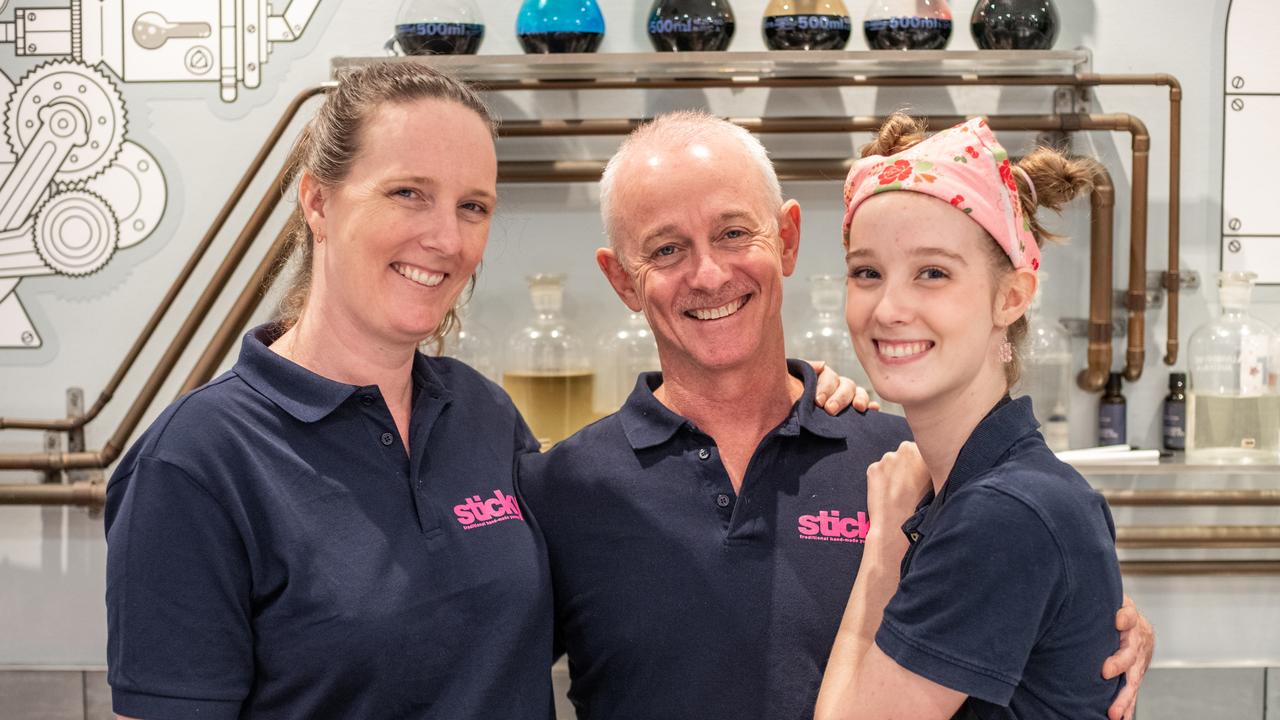
In all, they have 4.3 million followers on TikTok, 980,000 followers on Facebook with a monthly Facebook reach hovering at around 45 million, 200,000 subscribers on YouTube and 160,000 followers on Instagram.
While their large following might be impressive, Mr King was particularly stoked because it translated into cash for his business.
Their annual turnover has increased by 230 per cent, and they’ve made it well over seven figures – which they have never managed before. He has 10 staff members working round the clock.
“After about two months, we were pretty much working at capacity,” Mr King said.
“Everything around us was closed but we were making lollies, putting them in boxes, shipping them all around the world.
“We’ve been at capacity in terms of production ever since.”
Products often sell out in 10 minutes and the USA is Sticky’s biggest buyers.
“About 40 per cent of our customers are in the US and 80 per cent of our product is being shipped internationally,” Mr King said.
Australia is the second largest customer base, after the US.
The UK, Germany, Italy and Canada also make up a significant portion of his sales.
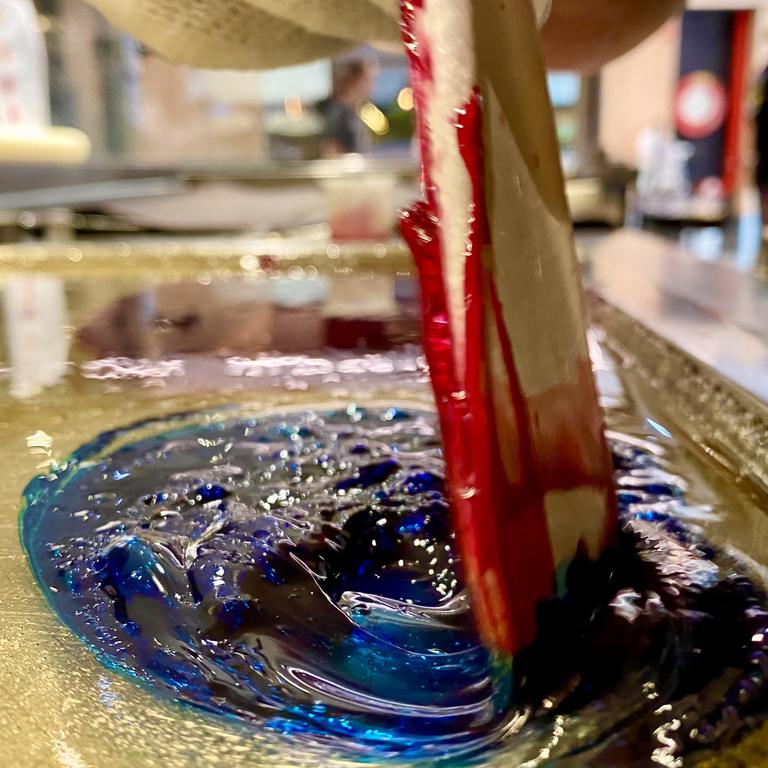
Not only does Sticky’s social media presence boost sales, but it also brings in an entirely new revenue stream – from ads.
“Once a week one of the videos we put ads in, then we cross-post a video from TikTok to Facebook,” Mr King said.
Mr King runs the Facebook and YouTube Channels, another employee is in charge of Instagram and his daughter Annabelle does all things TikTok.

Sticky’s social media stardom has also brought with it a few unexpected problems.
“I had scary experiences where I was hacked a couple of times,” he said.
In the early days “our website couldn’t handle the traffic and our website melted down,” he added.
However, that has since been resolved.
Have a similar story to share? alex.turner-cohen@news.com.au
Originally published as Sydney man saves lolly shop by going viral which brings in $1m in a year






